
"The restrictions regarding time spent overseas are for foreigners applying for Chinese colleges, and don't apply to these 'aliens,'" Xiong Bingqi, deputy director of the 21st Century Education Research Institute, told the Global Times, adding that the official response looked more like a way to soothe public rage over the policy than the reality would suggest.
'Privileged' foreigners
According to an MOE statement, the policy was intended to curb the practice in which many students found ways to obtain foreign nationalities, usually from small countries including the Philippines or even Guinea-Bissau, shortly before taking the gaokao. Instead they were able to take a special test, which is much easier, and get in top universities, which they otherwise could not enter, "which hampers the equality of higher education," read the MOE statement.
Another special examination applies to students from Hong Kong, Macao and Taiwan, as well as Chinese nationals who hold green cards in foreign countries.
This year's tests finished over the weekend, while the gaokao is scheduled for June.
"Everyone takes literature, mathematics and English exams, plus history and geography for humanities students, and physics and chemistry for science students," Jing Tingting (pseudonym), a graduate from the Renmin University of China who is a Hong Kong resident, told the Global Times, adding that the test has wider range and more practical questions, but is generally easier than the gaokao, "except for mathematics."
Jing is among those in Chinese colleges who was mainly educated on the mainland but has an overseas passport.
"We don't have to take political ideological courses and have better dorms," she said. "The screening process has become much stricter in recent years, because it may indeed have had loopholes or been unfair."
Moreover, if one parent is an overseas Chinese or returned overseas Chinese, students receive a five to 10 point bonus in the gaokao as an incentive to encourage the group to develop their careers in China.
"That 10 points helped me get into Peking University when I was off my game in the gaokao," a graduate student surnamed Ran, whose parents are permanent residents of Belgium, told the Global Times.
Fighting for equality
Together with Zhang Jiandang, Xu has been pushing for change since 2010, but has not seen much progress.
"The public is angry about the 'privileges' of foreigners, so the MOE has found some new restrictions in Zhang's case, but setting up stricter identity requirements can't deliver equality for other students," said Xiong, adding that universities should be allowed to develop more varied independent admission tests to solve the hukou issue, and ultimately, to separate the gaokao from university admissions tests.
"In regard to educational equality, I'd say that foreigners don't take up too many resources anyway, but if the hukou is not a requirement any more, people would swarm in to first-tier cities for the better quality of education and might cause serious problems in terms of city development," Zhang Xing, a former education professional who is now a publisher in Beijing, told the Global Times.
Zhang Tu is leaving for the US in August upon the issuance of his immigration visa, and will most likely stay there for the duration of his college education.
"We originally thought of taking the gaokao in Beijing, but now it seems impossible and unnecessary. I just want the best for him," said Zhang Jiandang.


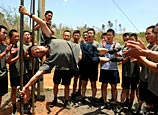

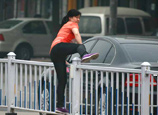
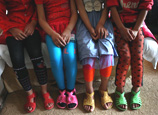
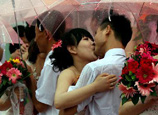

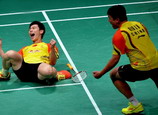
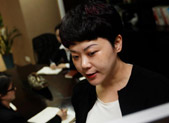
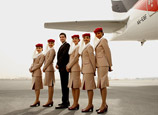






 Photo story: State-owned barbershop dying out
Photo story: State-owned barbershop dying out


![]()
